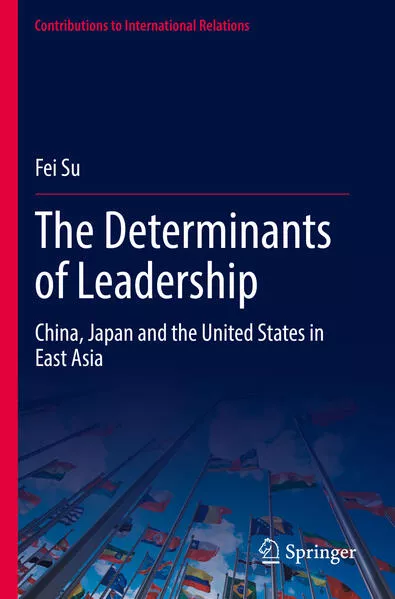
- Publikationen ca: 3
- Fragen & Antworten
Fei Su
Fei Su is a political scientist, whose research focuses on regional leadership, Sino-US competition, and mega Free Trade Agreements (FTAs). Moreover, she is also working on the Asian Infrastructure Investment Bank (AIIB), the Belt and Road Initiative (BRI), leadership competition, and digital transformation. Su holds a Master of Law in international relations from Zhengzhou University, China, and a PhD in political science from Ruhr University Bochum, Germany. She is a member of the European International Studies Association (EISA) and serves as a reviewer for the Journal of International Organizations Studies (JIOS).
The Determinants of Leadership
This book investigates the determinants of leadership in East Asia, emphasizing the significance of followership in the success and failure of leadership projects proposed by China, Japan, and the United States. While doing so, it answers a central question in the field of international relations: Why do potential leader countries succeed in obtaining potential followers in some instances, but fail to do so in other instances? Employing an inclusive leadership and societal approach, the book investigates how the leading countries motivate followership in East Asian economic and security dynamics.
The Determinants of Leadership
This book investigates the determinants of leadership in East Asia, emphasizing the significance of followership in the success and failure of leadership projects proposed by China, Japan, and the United States. While doing so, it answers a central question in the field of international relations: Why do potential leader countries succeed in obtaining potential followers in some instances, but fail to do so in other instances? Employing an inclusive leadership and societal approach, the book investigates how the leading countries motivate followership in East Asian economic and security dynamics.
The Determinants of Leadership
This book investigates the determinants of leadership in East Asia, emphasizing the significance of followership in the success and failure of leadership projects proposed by China, Japan, and the United States. While doing so, it answers a central question in the field of international relations: Why do potential leader countries succeed in obtaining potential followers in some instances, but fail to do so in other instances? Employing an inclusive leadership and societal approach, the book investigates how the leading countries motivate followership in East Asian economic and security dynamics.


